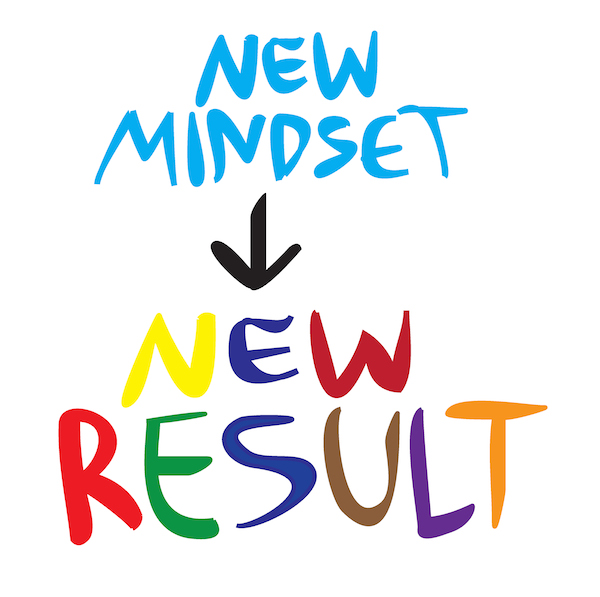Being An Expert Is Necessary But Not Sufficient
At a recent meeting of my colleagues, I had 15 minutes to present on the topic of mindset. The question at hand was is there a proper mindset for a coach, consultant or advisor that is more beneficial to serving one’s clients than other mindsets?
If you are a coach, consultant or advisor, of if you have customers of any kind, even within the organization you work for, this discussion may open your eyes to a new way of thinking about your relationship to the people you help.
First let’s start with a simple definition of mindset: your established attitudes that constitute your way of looking at the world and interpreting situations
One mindset you can bring to your client relationships is that you are the expert and you are in charge…of the relationship, of the problem definition, and of the solution. You’re probably saying to yourself right now, well I am the expert; that’s why they hired me.
I get it. I’ve been hired to run research projects, evaluate long-running programs, and in my role as a conflict expert, establish mediation programs serving large organizations. And today as a coach to provide the tools and strategies that allow you to ask for what you want with authority and grace.
Process Skills Build Trust
But what if there’s another piece here. What if bringing your expertise is necessary but not sufficient? What if jumping in with solutions and answers, as essential as these are to meeting your customer’s, client’s or corporation’s needs, is not the whole picture?
Isn’t the point of your expertise to help the person who hired you implement change so their situation…their job, their relationship, their finances…improves?
All your professional relationships are, whether you are aware of it or not, are built on trust. Trust that you can and will deliver what is wanted and needed. Trust that you have the client’s best interest in mind, and not just your own.
But what about the times when you don’t know everything? What about the times when you don’t know what you don’t know? Have you ever rushed to solve a problem, because you are “the expert,” the one with the information, the research, the analysis and the recommendations?
Maybe you haven’t fully understood the problem. I know I have done that earlier in my career. I heard one or two phrases out of a client’s mouth and assumed that the problem/solution was sitting right there in my toolbox. Well, let me tell you that solving the wrong problem is pretty embarrassing!
What can you do instead? Side-by-side with being an expert in your field, you can step back and realize that your client (customer, organization) is also competent and understands their situation pretty well (probably better than you do, especially if you are intent on fitting them into a predetermined “problem” slot.)
In fact, this is the time where process skills are more important than expertise to create trust in a working relationship.
What If…You Saw Your Client As Competent and Powerful?
Are you the only skilled person in the room? (This is a rhetorical question.) Being able to listen carefully and respectfully and focus on what the client is saying is one way of demonstrating your belief (i.e. mindset) that your client is powerful. For many experts, giving the client equal status is very challenging. If you’re not there as the one with the power because of your expertise, why are they paying you?
What if…you allow the client to take joint responsibility for defining and solving the problem? When people take an active role in figuring out and finding solutions to their own problems, with your guidance and advice, they are much more likely to implement solutions. So what would you rather be? A content expert who has all the answers to problems that no one will implement? Or a trusted advisor who can listen, guide, and empower others to take a role in creating solutions they can be committed to implement?
Many people talk about empowerment. What does that even look like? The above discussion provides one picture of empowering our clients: by helping him or her articulate the situation and begin to see it as solvable; and then helping them make decisions about solutions they can own and will carry out, even when you have left the room.
I hear from many colleagues about their frustration that they have given their clients a lot of valuable information and suggestions, yet the client is doing nothing. In fact, even though my colleagues were paid well for their expertise, their own satisfaction with the work is low…they really wanted to help solve the problem.
In my opinion, the missing piece must be coming from my colleague’s mindset: do they see the client as powerful? Do they believe the client can help define the problem? Can they actually take the risk of letting down the mask of expert for a time to sit side by side with that client in partnership to look at the problem together, or do you insist as seeing the problem as part of the client himself? Two very different mindsets as reflected in two different images.
And a parting note…how many of you bring your “expert” mindset into your most intimate relationships, assuming you know what is right for your spouse, your child, your best friend? Are you an expert on everything? If you want to be the expert’s expert, I suggest becoming an expert in listening and empowering others. That would be the epitome of service to others.
Whether you are a palm reader, a fitness coach, or a conflict expert, the success of your work requires both your expertise and your ability to understand and hold your client as competent and powerful in her or his own life. Do you agree? Share your comments with the rest of us in the Comments Section below.








